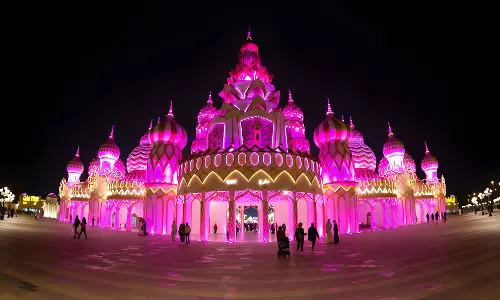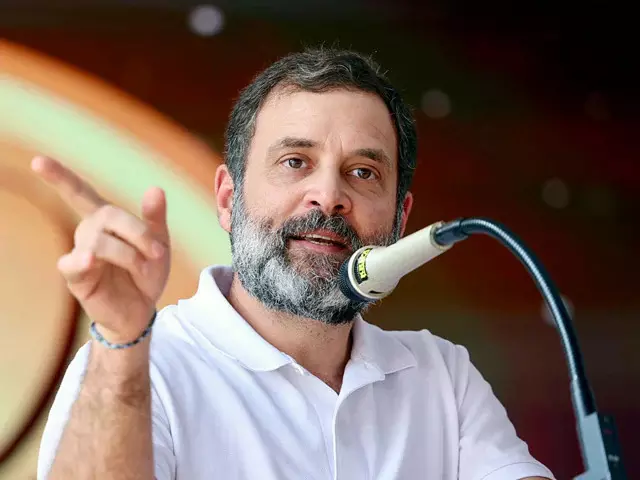
A court verdict that raises questions
text_fieldsThe Gujarat High Court judgment dismissing Rahul Gandhi's plea encompasses serious overtones in the political and legal spheres. With the High Court rejecting Rahul Gandhi's appeal to stay the verdict of the Magistrate's Court w had hichfound him guilty in the defamation case, it is also certain that he will continue to remain disqualified from the post of Member of Parliament (MP). The Congress has stated that it will approach the Supreme Court against the verdict. Shortfalls and legal ambiguities have been raised over the High Court judgment. After the verdict of the Magistrate's Court, the judgment now passed by the High Court upholding the Magistrate Court verdict and making additional observations of its own, also raises several questions about its legal propriety and administration of justice. The case pertains to Rahul's speech in Karnataka’s Kolar district in 2019 during which he remarked “How come all thieves have Modi in their surnames”. Gujarat BJP MLA Purnesh Modi filed a complaint saying that it defamed all those with the surname Modi. The Magistrate Court in Surat convicted Rahul, sentencing him to two years imprisonment with a fine. Although Rahul approached the district court and the High Court, his appeals were rejected. High Court Justice Hemant Prachchhak said that the trial court's decision to sentence Rahul was “just, proper and legal” and that Rahul's arguments questioning the judgement were baseless. Defamation is a violation of the fundamental right to dignity. It is a serious offence when it comes from representatives of people- so goes the High Court's observations.
The main contention of the respondent is that the court’s decision is not reasonable in the crucial issue of whether Rahul’s remark was defamatory to the complainant. Courts have observed several times that criticizing the Prime Minister or the government cannot be considered as sedition or defamation. Here, the context of Rahul's remark is important. The subject of his speech was the corruption that plagued the Modi regime in the form of crony capitalism. The defendant pointed out that other than criticising corrupt people and the Prime Minister who sympathizes with them, the remark does not defame others with the surname Modi or those belonging to the Modi community. But the court was not convinced by this argument. It is pointed out that the maximum sentence of two years' imprisonment is very rare even if the remark is found to be defamatory. Its political significance is the term of imprisonment exactly meeting the requirement for disqualification from Lok Sabha membership. It is also unusual to give a maximum penalty for the first offence. As a justification for this, the High Court pointed out that there are ten such defamation cases against Rahul.
But another question is, in a country where there is a practice of filing cases against political opponents to silence them, how far is it justified to create an impression of a habitual criminal by citing the number of cases under trial. There are also political questions raised by the course of events and the timeline of the case. The alleged defamatory speech took place in April 2019 - in Karnataka. BJP leader Purnesh Modi in Gujarat feels that it is defamatory to him and files a case. The case has been dragging on for two years. There was a gap of several months between the trials. Rahul is summoned to court; the court however, rejects Purnesh's appeal to summon Rahul a second time. Following this, the plaintiff makes an unusual request - to defer the case indefinitely. The Gujarat High Court accepts this. In February this year, Purnesh approaches the High Court again with another demand - to reopen the case immediately. The reason given for his appeal was that 'new evidence' had been discovered, but that evidence never came before the court. During the interim period when the case was frozen, something else had also happened - the judge in the trial court was replaced.
With the High Court accepting the request to reopen the case, the case progressed faster than before. Seven hearings in twenty days; Rahul was convicted on March 23. The maximum punishment was awarded too. Based on that, Rahul is disqualified from the Lok Sabha within 24 hours. The political outcome of the case which saw several unusual happenings, was the expulsion of a prominent voice of opposition from the Parliament, who raised serious questions including those about the Modi-Adani relationship. Once the case reaches the Supreme Court, there will be a final decision on the matter. Be that as it may, beyond being a defamation case, it has come into public discussion as something that affects democracy, the judiciary and their credibility. The Modi government continues to succeed in making the Parliament a mere watchdog. The dark shadow of power influence has been tainting the judiciary. Government efforts to interfere in the appointments and promotions of judges continue; complaints are rife that post-retirement paybacks offered by the government influence the judgments. Even judgments take on a controversial and divisive style. All this leads to the erosion of justice in governance, the strength of democracy and the credibility of the judiciary.
 Also Read:Gujarat HC calls session court’s ruling ‘just and legal’ to affirm Rahul’s conviction
Also Read:Gujarat HC calls session court’s ruling ‘just and legal’ to affirm Rahul’s conviction
























